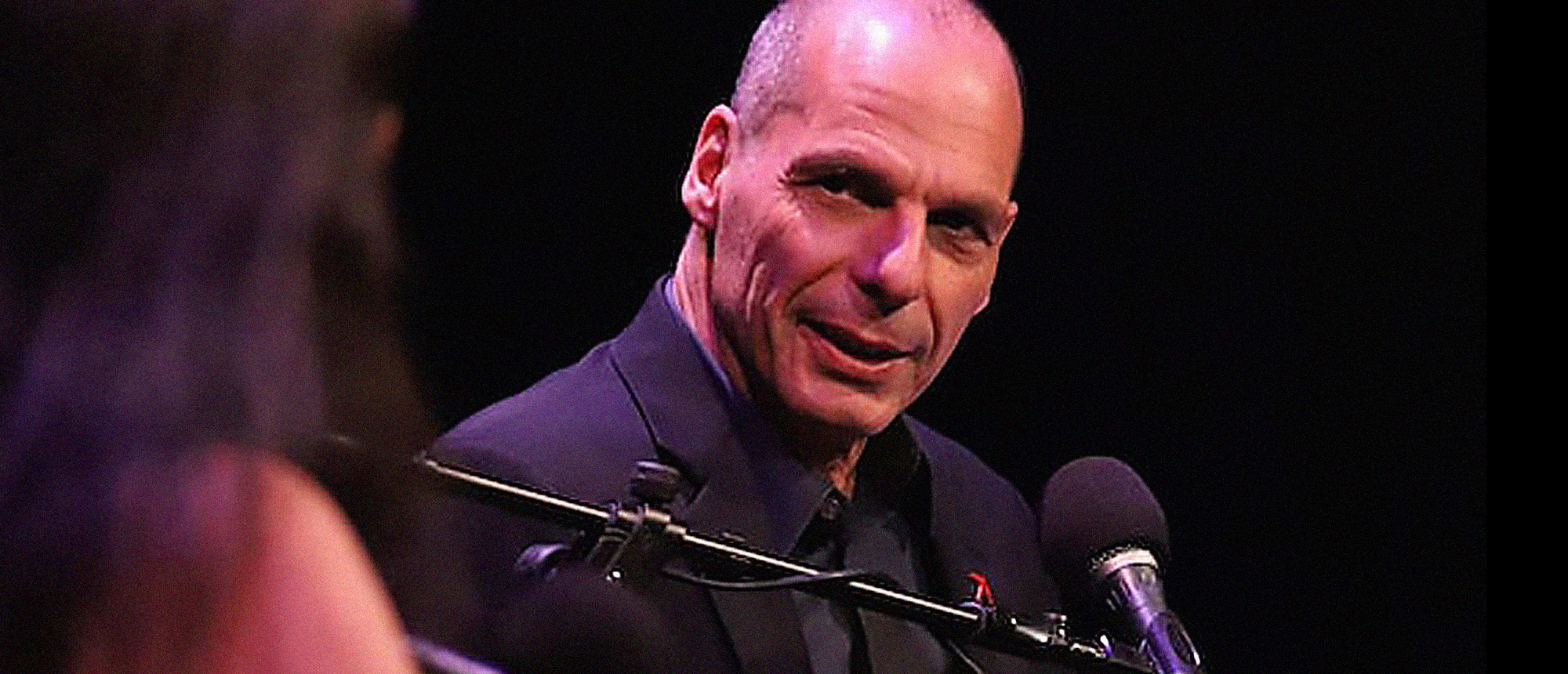Technofeudalism As Explained By Yanis Varoufakis
It’s a thought everyone has had while scrolling through social media.
“How did it know I wanted to buy that?”
For Yanis Varoufakis, a “maverick” economist and former Greek finance minister, this change of how we consume products marks the death of capitalism.
In his new book, Technofeudalism: What Killed Capitalism, Mr Varoufakis argues that through the emergence of cloud technology we have undergone an epochal shift that means the traditional capitalist market is no more.
Feudalism refers to the medieval-era social system that dominated Europe. Its basic idea is that peasants (also known as serfs) served their lords through farming and labour and in return, got to live within their kingdom. Technofeudalism is the notion that we serve our big tech overlords (Amazon, Google, Apple and Meta) by handing over data to access their cloud space.
Technofeudalism suggests our preferences are no longer our own, they’re manufactured by machine networks — commonly known as the cloud. It’s underpinned by the theory that the cloud has created a feedback loop that removes our agency. We train the algorithm to find what we like and then the algorithm trains us to like what it offers.
Referencing the television program Mad Men, Mr Varoufakis told The Drum that the market is no longer a “one-way street” with advertisements.
“Don Draper had a great idea on how to convince you [the consumer] to eat a burger you didn’t really need, or a billboard could implant in your heart the desire for a Mercedes-Benz,” he said.
“And then if the ad was successful, you would have to physically go to a Mercedes-Benz dealer or to a burger joint and actually buy the stuff from the actual maker or seller of that commodity.”
We are ‘cloud-serfs’
Mr Varoufakis said by scrolling and browsing digital media we are acting as ‘cloud-serfs’ — working as unpaid producers of data to disproportionately benefit our digital overlords.
“When Amazon suggests books to me, they’re usually books I want to read, similarly with Spotify or Netflix. They know me pretty well because of this dual process of feedback between me, you, and the machine.”
The second important factor to Mr Varakoufis is how the likes of Amazon circumvent the traditional analogue market.
“Once you want something, as a result of interaction with a machine, the machine sells it to you directly,” he said.
“You don’t have to go to the Mercedes-Benz dealer or the burger joint outlet to buy it. You just click on a button and Amazon ships it to you. Amazon has replaced the market.”
“Some people think of Amazon as a big marketplace because they have lots of sellers and buyers. But it’s not. There are a lot of sellers and buyers, but it’s the algorithm that matches them in a way that has nothing to do with any notion of the market as we know it.”
Mr Varoufakis said that a lack of understanding by governments and banks of the cloud and big tech is making our financial crisis “permanent”.
“Cloud capital is not like industrial robots or telephone systems. It’s not like electricity grids. It is there not to produce, but it is there to modify your behaviour,” he said.
“It’s a new form of capital, it’s a produced means of behaviour modification.”
More accountability needed over those who own the algorithms
Ethics Centre Fellow Gwilym David Blunt said policy makers need to do more to hold tech billionaires, such as Jeff Bezos, Elon Musk and Mark Zuckerberg, accountable.
“The curious thing about these people is that you often find the term “libertarian” associated with [them],” Dr Blunt said.
“But they’re not libertarians, they’re very much authoritarians, they’re not interested in freedom for everyone
“They’re interested in themselves from over-regulation — they’re overlords, wanting to be free of constraint like feudal overlords of the past as divine right of kings.”
Dr Blunt warns that society is too wedded to cloud technology, in a way that only rewards the tech billionaires.
“They view themselves arbitrarily as geniuses [and] we are buying into it one click at a time, affirming their power,” Dr Blunt said.
Dr Blunt said that we give online marketplaces “the power to shape our desires” by agreeing to their “terms of social cooperation”.
Blunt argues that these algorithms are shaping the way we interact with each other which ultimately erodes democracy.
“All these things are shaping the way we interact with each other and there’s no accountability,” he said.
“Power is slowly centralising in the hands of a few people … this is crushing the bases of democratic society, because we are creating a hyper-concentrated source of economic power that can’t be checked by the state because it’s transnational.”
Mr Varoufakis suggests that it’s not too late to emancipate ourselves from our cloud-serfdom status.
“What we need is social control over the algorithm. The question is — not what do they know about us, but who owns them? And how can organised democratic society take control of the algorithms in the interests of the many?” he said.
“All political problems have political solutions. The difficulty is getting organised and converting what is in our collective interest into collective action.
“But it’s always been the problem of politics since the beginning of democracy.”

